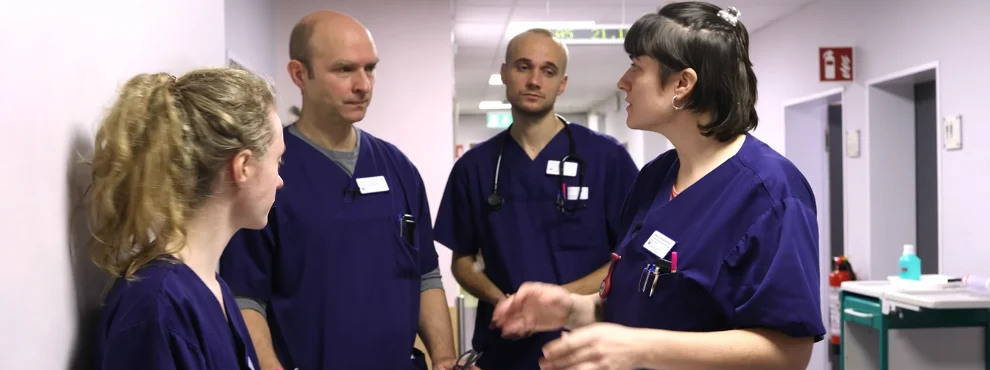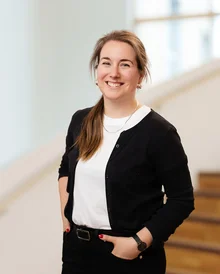Future medicine in Witten: students help shape healthcare responsibly
Witten/Herdecke University is the first university in Germany to implement a new teaching model from Harvard Medical School. The first cohort has successfully completed the pilot programme.

How do medical students become doctors who not only treat, but also empathise with their patients - who take responsibility and change the healthcare system? With Germany's first "Longitudinal Integrated Clerkship" (LIC), Witten/Herdecke University (UW/H) is tackling this question in a very concrete way - and thus remaining true to its self-image: reforming teaching and training young people to become capable actors in holistic healthcare.
Eleven fifth-semester medical students were the first cohort to successfully complete the "LIC UW/H" pilot project: they accompanied their own patients through the treatment process over several months, remained in close contact with the supervising doctors and worked on an interdisciplinary basis with the Herdecke Community Hospital and cooperating GP practices. In this way, they did not learn subjects such as internal medicine, surgery and general practice separately from each other, as is usually the case. Instead, they looked at the interplay between the disciplines in terms of the questions and topics that arise in healthcare practice. At the same time, instead of the usual lectures, they had case-orientated seminars on the topics of their patients. In terms of content, the project is based on the "Cambridge Integrated Clerkship" at Harvard Medical School. A working group from Boston was in Witten in 2024 to adapt the model to German conditions and develop it further in line with the German licensing regulations.
"In contrast to traditional block internships and clinical clerkships, our students step out of the mostly passive role of learners. They build relationships with their patients, experience self-efficacy and actively help shape care. This is not only professionally effective, but also enriching on a personal level - for both sides," says PD Dr Christian Scheffer, initiator of the project and lecturer in the Integrated Curriculum for Anthroposophic Medicine (IBAM) at the UW/H.
Mutual benefit: when students help shape the programme
The patient-centred approach already promises both sustainable learning success and the promotion of emotional skills. "When preparing for examinations, I still have my patients in front of me. The motivation is completely different when I know what clinical pictures and treatments actually mean," says Camille Espenkott, medical student and head of the student initiatives "LIC UW/H - Klinik neu denken". Together with her fellow students from the first round of the programme, she was able to actively help shape the course content and incorporate her practical experience.
At the same time, patients benefit from the additional attention and support of the prospective doctors, who translate complex findings, accompany them to procedures or simply help them through the crisis by listening to them. "In the LIC, students do not become experts for a medical case, but for the holistic health of their patients - for example, for the influence of lifestyle, psychosocial aspects and existential questions associated with illness and healing," says PD Dr Christian Scheffer.
A model with a future for medical teaching
The new teaching approach for practical training has won over the medical students in Witten. The second cohort has already started. In order to establish the LIC UW/H in the long term, the project is being scientifically monitored. A comprehensive evaluation is analysing how the model affects learning processes, examination performance and the quality of care. In this way, Witten/Herdecke University aims to show how medical teaching, healthcare and the social mission can be combined and rethought: Small groups, student co-design, relationship-orientated learning and change competence.
Further information:
A first article on the LIC UW/H was published in the "Student's Corner" section of the journal The Mind and shows how the programme co-developed by students promotes well-being and a sense of reality in clinical education.
A background video with PD Dr Christian Scheffer (UW/H) and Prof David Hirsh (Harvard Medical School) presents the model project. More information is also available here.
Photos for download
Contact person

Miriam Kreimeyer
Communications Officer
Administration | Communication & Marketing
Alfred-Herrhausen-Straße 48
58455 Witten
Room number: 2.F05
